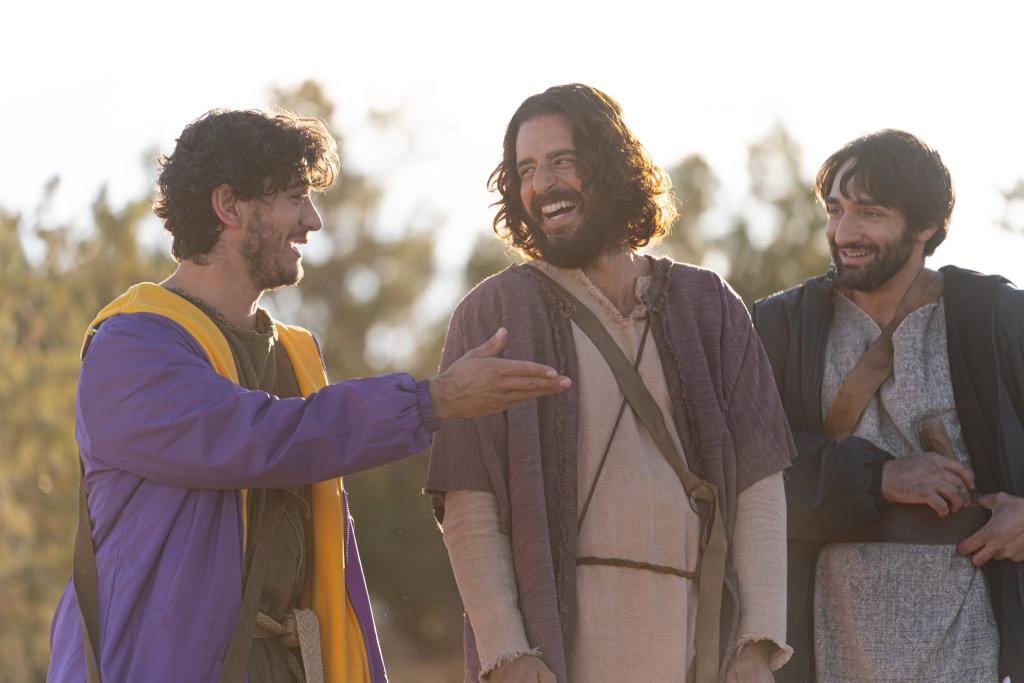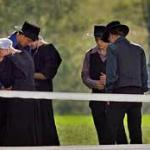The fruit of the Spirit is love, joy, peace, longsuffering, gentleness, goodness, faith, meekness, temperance: against such there is no law.
 During his remarks at the Democratic National Convention last week, Rev. Al Sharpton quoted Psalm 30:5—“Weeping may stay for the night, but joy comes in the morning. As an excellent preacher should do, he repeated joy comes in the morning several times with increasing volume, met each time by the increasing cheers of the crowd.
During his remarks at the Democratic National Convention last week, Rev. Al Sharpton quoted Psalm 30:5—“Weeping may stay for the night, but joy comes in the morning. As an excellent preacher should do, he repeated joy comes in the morning several times with increasing volume, met each time by the increasing cheers of the crowd.
He knew his audience—these were people who, along with millions of their fellow Americans, had been tentatively emerging for the last few weeks from what seemed like a long nightmare of weeping. What’s this unfamiliar feeling that I’m waking up with rather than dread and angst? That’s JOY! Why did I spend five to six hours of four straight evenings last week watching the convention, staying up well past a bedtime appropriate for a morning person in his late 60s? That was JOY! Why is there a national buzz in the air that I haven’t noticed since 2008? That’s JOY!
This passage from Galatians at the beginning of this essay is one of the first portions of scripture that I ever memorized. Sorry about the King James Version—that’s the translation we used and that we suspected was the language in which God dictated the Bible to divinely appointed secretaries. I’ve heard many sermons on “the fruit of the Spirit” over the years and have written a blog post or two about this passage as well. It’s not surprising that love is mentioned first; Paul is the guy, after all, who said that “the greatest of these is love.” I don’t recall, however, ever hearing a sermon on the fruit that gets second mention: Joy.
This is strange, given that Christians claim to be the bearers of “Good News” for everyone. Yet a brief journey through just a few Christian social media sites reveals that Christians are often angry, defensive, tribal, judgmental, and dismissive both to outsiders and to those within their own camp. This is not only sad but also is contrary to the spirit of the gospel. One of the many things I greatly appreciate about “The Chosen,” the multi-season cinematic treatment of the life of Jesus whose fifth season will be coming early next year, is that Jesus and his entourage laugh a lot. They have fun. They smile. They tell jokes and pick on each other. If one is dedicated to following Jesus, one should on occasion simply step back and be joyful about being part of the greatest story every told.
I recently finished reading Sarah Bessey’s Field Notes for the Wilderness, a book that I highly recommend for anyone who, to use a word that has become common in many religious circles, is in the midst of “deconstructing” their faith. Often such people describe themselves as being in the desert or wilderness; similar to the children of Israel in Exodus they have left a place both familiar and increasingly toxic and find themselves in unfamiliar and sometimes disconcerting surroundings, not at all sure where this will all end up.
Sarah Bessey is, along with the late Rachel Held Evans, the founder of “Evolving Faith,” a network of conferences, podcasts, literature, and social media sites specifically designed with wilderness people of faith in mind. The Theology Beer Camp event that my son and I will be attending in October in Denver is another venue for such folks. Jeanne and I attended an Evolving Faith conference in Minneapolis last fall; among the keynotes were speakers I’ve mentioned on this blog frequently over the past years: Nadia Bolz-Weber, Krista Tippett, and one of the founders of the event, Sarah Bessey.
I spent a great deal of my adult life in the faith wilderness. Although I don’t necessarily consider myself to be “deconstructing” my faith any more, that was a necessary decades-long process that set the stage for a building of a unique, somewhat out of the box faith framework that is still under construction (this is “Freelance Christianity, after all!). Accordingly, I resonate with those who describe themselves in the wilderness. Sarah Bessey’s book is intended as a guide for such folks written beautifully and intimately by a person who has lived her last decades precisely where they are.
Organizing her book as a series of letters on specific topics to desert wanderers, Bessey has some important things to say both about the fruit of the spirit and specifically joy in the final chapters.
I’m tired of the mental and spiritual gymnastics that require us to contort ourselves into believing anything other than the nine qualities Paul lists as good fruit. Look for the places and people where you’re experiencing love. Watch out for joy and lean into peacemaking . . . I’m not interested in being disciplined in outrage. We don’t need any more selfish and impatient role models. This world isn’t crying out for more division and brokenness. Nope, we’re good, thanks.
Important words for those who seek to fuse their Christian commitments with nationalism, for instance. If anger, outrage, and “othering” are central parts of your Christian belief framework, you’ve lost sight of the fruit of the spirit.
Later, Bessey suggests that in a world filled with violence and bad news, we might feel that we need permission to be joyful. She’s happy to provide it.
Not only do we need permission to be honest about emotions ike sadness, anger, and fear, we need permission to be joy-filled . . . You don’t really need my permission to feel joy, but just in case, here you go: you are allowed to feel joy. And your experience out here in the wilderness is one way you’ve chosen joy. Communally, personally, in every way, you are choosing joy.
The older I get, the more I realize that many of the things my Baptist preacher father said frequently in his sermons, things that often either went over my head or that I simply ignored, contain a great deal of truth. For instance,
Fill your life with people whose faces light up when you enter the room. Jesus loved everyone, but he spent a lot more time with Peter, James, and John than he did with Caiaphas, Annas, and Herod.
Good advice. Go forth and be joyful!













